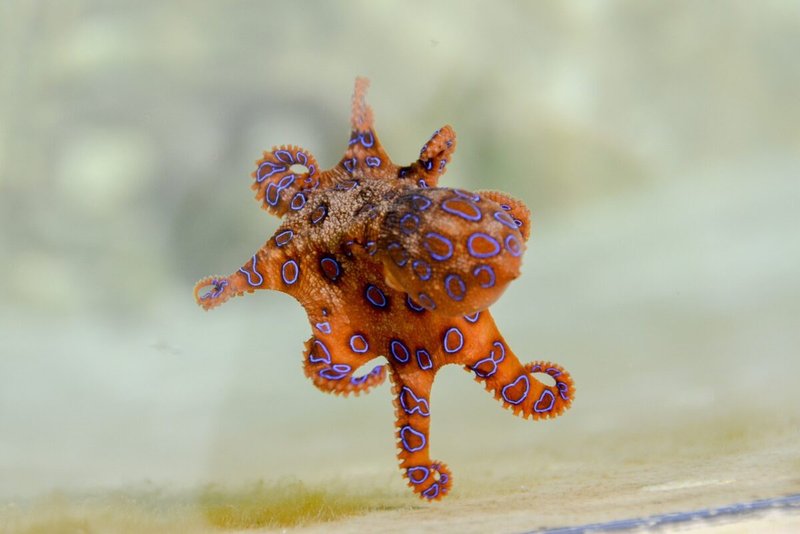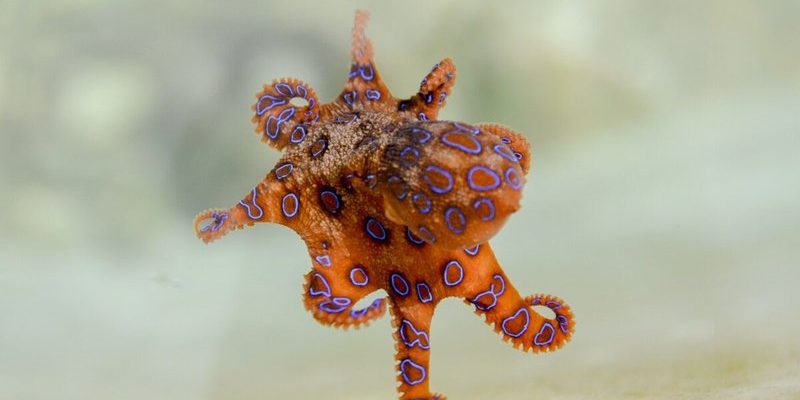
These fascinating cephalopods are not just visually stunning; they are also incredibly intelligent and possess some of the most potent venom in the animal kingdom. However, they face a variety of threats that could jeopardize their existence. Let’s dive into some of the most pressing issues these remarkable creatures encounter in their natural habitats.
Habitat Loss and Degradation
One of the main threats to the blue-ringed octopus is habitat loss. Coastal development, such as urbanization and construction, often leads to the destruction of the rocky reefs and tide pools where these octopuses thrive. Imagine your home being torn down to make way for a shopping mall—this is the reality for many marine creatures.
Additionally, pollution poses a severe risk to their habitats. Chemicals and waste find their way into the ocean, affecting water quality and the health of ecosystems. For instance, *heavy metals* and *microplastics* are increasingly harmful, disrupting the balance of marine life. Without clean environments, the food sources for blue-ringed octopuses dwindle, making survival much harder.
Furthermore, the effects of climate change can’t be ignored. Rising sea temperatures and ocean acidification lead to the bleaching of coral reefs, which directly impacts the biodiversity of the areas where blue-ringed octopuses live. With their homes disappearing, these octopuses are left vulnerable, struggling to find food and shelter.
Overfishing and Bycatch
Another significant threat to blue-ringed octopuses comes from fishing practices. Overfishing depletes fish populations, which means fewer prey options for these hunters. Less food availability can lead to starvation, and ultimately, a decline in their populations.
Moreover, bycatch is a serious issue. This occurs when marine animals, like blue-ringed octopuses, are unintentionally caught in fishing gear meant for other species. You might picture a fisherman casting nets, only to discover a blue-ringed octopus trapped alongside their intended catch. This not only harms individual octopuses but can also disrupt the overall population in sensitive ecosystems.
Some fishing methods, such as trawling, are particularly harmful. They disturb the ocean floor and can destroy habitats that are crucial for the survival of various marine creatures. When ecosystems are damaged, it can take years, if not decades, for them to recover.
Pollution and Chemical Contaminants
Pollution is an ongoing problem for marine life, and blue-ringed octopuses are no exception. Chemical contaminants enter the ocean through runoff from cities and industries. Think about how you’d feel if your favorite park was littered with trash and toxic substances—marine animals, too, have to navigate these hazardous environments.
Heavy metals such as mercury can accumulate in the food chain, meaning that small fish consume these toxins and pass them up to predators like the blue-ringed octopus. When octopuses eat contaminated prey, they also ingest these harmful substances, leading to health problems.
Plastic pollution is another massive issue. Marine debris can cause physical harm to these creatures. Imagine an octopus getting tangled in a piece of plastic—it would struggle to free itself and might even become trapped. This is especially concerning since blue-ringed octopuses are often found hiding in crevices, where waste can accumulate.
Climate Change and Its Effects
Climate change is an overarching threat that impacts nearly every aspect of our planet, including the delicate ecosystems that blue-ringed octopuses depend on. As ocean temperatures rise, the habitats crucial to their survival can shift or shrink.
For example, warmer waters can lead to changes in prey availability. As fish migrate to cooler areas, blue-ringed octopuses may find it harder to locate food. This can result in decreased reproduction rates and, ultimately, fewer octopuses in the wild. It’s like if your favorite restaurant suddenly closed; you’d have to adapt quickly to survive.
Additionally, ocean acidification—a direct consequence of climate change—can harm the shells and skeletons of many marine organisms. This impacts the entire food web, affecting both the creatures blue-ringed octopuses depend on for food and the overall health of the ocean environment.
Invasive Species
Invasive species can also pose a significant threat to blue-ringed octopuses. When non-native species are introduced to a new environment, they often disrupt the local ecosystem. For example, invasive fish species might compete for the same prey, making it more challenging for blue-ringed octopuses to find food.
A classic example is the lionfish, which has spread across the Caribbean and Atlantic waters. Lionfish are voracious predators and can significantly reduce native fish populations, leading to less food availability for many marine predators, including blue-ringed octopuses.
These invasive competitors often have no natural predators in their new environment, allowing them to thrive and cause harm to native species. The balance of the ecosystem gets thrown off, creating a cascade of negative effects for creatures like the blue-ringed octopus.
Human Interaction and Disturbance
Humans frequently venture into marine habitats, whether it’s for diving, snorkeling, or simply enjoying a day at the beach. While recreational activities can be fun for us, they can be stressful for marine wildlife. Imagine a beautiful octopus hiding in its den, only to be disturbed by a group of excited beach-goers. This kind of interaction can lead to stress and sometimes even leave these creatures vulnerable to predators.
Moreover, habitat disturbance from boating and other watercraft can destroy crucial reef structures. Anchoring in sensitive areas can damage the home environments of blue-ringed octopuses, putting them at risk. It’s essential for marine enthusiasts to be mindful of their impact on these delicate ecosystems and to practice responsible behavior when enjoying the ocean.
Conservation Efforts and What You Can Do
As the threats to blue-ringed octopuses are considerable, conservation efforts are more important than ever. Various organizations are working to protect their habitats through sustainable practices and awareness campaigns. For example, marine protected areas (MPAs) have been established to limit human impact in critical locations, creating safe havens for blue-ringed octopuses and other marine creatures.
You can play a role in conservation, too! Here are some quick tips:
- Reduce plastic use—opt for reusable bags, bottles, and containers.
- Support sustainable seafood choices—check labels and ask where your food comes from.
- Participate in local beach cleanups—every little bit helps in preserving ocean health.
- Educate others about the threats marine life faces and the importance of preserving their habitats.
Protecting blue-ringed octopuses means safeguarding entire ecosystems. By taking small steps, we can all do our part to ensure these beautiful creatures continue to thrive in the wild.
In conclusion, the blue-ringed octopus faces numerous challenges in its natural habitat, from habitat loss to pollution and invasive species. By understanding these issues and advocating for conservation efforts, we can help preserve the delicate balance of marine ecosystems. Let’s work together to ensure that these stunning animals continue to grace our oceans for generations to come.

